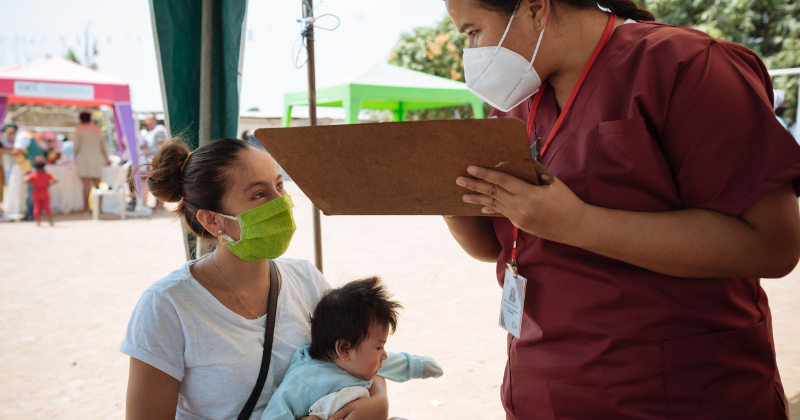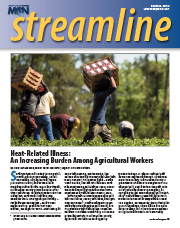
In July 1974, the National Research Act established the existence of Institutional Review Boards (IRBs) to review biomedical and behavioral research involving human subjects. The US Food and Drug Administration was tasked with interpreting the Act and regulating IRBs; they started by defining an IRB as an appropriately constituted group formally designated to review and monitor biomedical research involving human subjects. Per FDA regulations, an IRB has the authority to approve, require modifications in (to secure approval), or disapprove research. This review serves an important role in the protection of the rights and welfare of human research subjects.
The purpose of the IRB review is to ensure, both in advance and by periodic review, those appropriate steps are taken to protect the rights and welfare of humans participating as subjects in the research. To accomplish this purpose, IRBs use a group process to review research protocols and related materials (e.g., informed consent documents and investigator brochures) to protect the rights and welfare of human subjects of research.
Migrant Clinicians Network (MCN) has an IRB within the organization to review research protocols submitted from MCN and outside of MCN. The MCN IRB consists of members who are well versed in the elements of informed consent, institutional processes of research, compliance with relevant regulations, and ethical guidelines. They also have a clear understanding of what is needed to work effectively with a culturally and linguistically diverse study population, emerging research issues, and new researchers. A literature gap exists in research concerning migrant and seasonal agricultural workers, as well as other mobile marginalized populations. MCN as an entity wanted to conduct more research to ensure and promote well-being as well as rights of these vulnerable populations. Since its establishment in 1999, the MCN IRB has contributed to illuminating health concerns that agricultural workers and other underserved patients face in their daily lives. These workers face different challenges from the general public in their work responsibilities, transportation, lack of official documentation, levels of literacy, culture, and language. Today, MCN’s IRB is as relevant as ever and continues to advocate for research that attends to the rights, safety, and welfare of agricultural workers and other underserved research subjects.
The MCN IRB is composed of five members with doctoral degrees and two with Master’s degrees. Of these seven members, there is always a designated Chair and Vice-Chair of the IRB. All seven IRB members are volunteers. The MCN IRB has two IRB support staff members designated to organize and orchestrate communication between the IRB and applicants. All applications are advised to be received at least two months before the start date of a project or research activities. Once an application is submitted, the request will be reviewed by an IRB liaison, then sent to the IRB for a thorough review. The MCN IRB meets monthly and a response to the applicant is typically available within 45 days of acceptance of the application. Typically, institutions will have their own IRBs to oversee research conducted within or outside of the institution. As an independent IRB, MCN is unusual in that MCN’s IRB is not part of an institution such as an academic medical center or hospital. MCN can provide IRB services for single and multisite studies within the United States and Puerto Rico. MCN’s IRB tailors its procedures to serve both experienced researchers and organizations that may be new to the research world.
In 2012, MCN’s IRB received a Certificate of Merit for Best Practices from the Health Improvement Institute. In the intervening years, the IRB has enabled researchers to effectively recognize the health conundrums facing underserved populations while ensuring that research subjects’ unique needs, safety, and rights are top priorities. In 2020, the MCN IRB reviewed 12 different applications for research projects. Of these 12 projects, three of them were regarding the COVID-19 pandemic and its impact on vulnerable populations. Additionally, of these 12 projects, seven were submitted by MCN. Most of the 12 projects were related to issues surrounding marginalized populations and people of color. The average amount of time reviewing a protocol can vary, but the IRB members usually contribute three hours every month to reviewing protocols. This past year, the IRB members spent 294 hours reviewing, responding, and meeting to discuss protocol submissions.
Learn more about MCN’s IRB including submission guidelines and profiles of our IRB members: https://www.migrantclinician.org/services/research/institutional-review-board.html
MCN’s Institutional Review Board Seeks New Members
Migrant Clinicians Network (MCN) is seeking additional reviewers for their Institutional Review Board (IRB). MCN’s IRB provides protocol review for 6-12 research protocol applications per year. Each application is reviewed initially by the chair of the IRB to determine the type of review and readiness for a full review. Two members of the IRB provide the full review. IRB members rotate, taking protocol reviews as applications are received. These board positions are non-compensated. Currently, there are 5 IRB members. You can learn more about MCN’s IRB and its critical work in protecting migrant and other vulnerable populations while research is conducted at MCN’s IRB webpage: https://bit.ly/3lywRgX. In this review and oversight role, unaffiliated community individuals appointed as members of the IRB serve an essential oversight role for proposed and ongoing human research projects.
MCN IRB members:
- Possess diverse qualifications and backgrounds relating to human subjects’ research, including familiarity with vulnerable groups or the community;
- Maintain an excellent working knowledge of federal regulations, MCN policy, and state and local laws about the protection of research participants, and complete orientation, training, and continuing education for their role in protocol review;
- Review proposed and ongoing research projects;
- Suspend or terminate human research projects in which participants are at potential risk, and/or are not being conducted in compliance with federal regulations or MCN policies;
- Disclose any protocol-related conflict of interest which has the potential to impact their consideration of the rights and welfare of participants;
- Function independently in the review and oversight of human subjects’ research, free of coercion and undue influence from other entities;
- May observe or direct another party to follow the consent process or any part of the research;
- Commit to attending the IRB monthly meetings.
If you are interested in joining MCN’s IRB, please contact Theressa Lyons-Clampitt at (512) 579-4511 or email her at tlyons@migrantclinician.org.

Read this article in the Summer 2021 issue of Streamline here!
Sign up for our eNewsletter to receive bimonthly news from MCN, including announcements of the next Streamline.